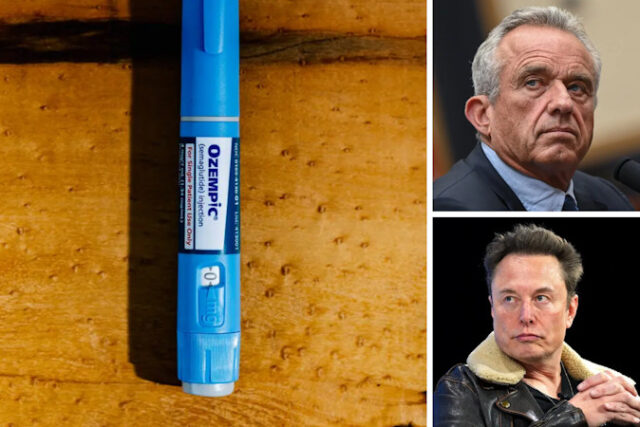
For Robert F. Kennedy Jr., the activist whom President-elect Donald J. Trump will nominate to serve as the secretary of health and human services, the solution to obesity in America — now at 40 percent of adults — is straightforward: “The first line of response should be lifestyle,” he told Jim Cramer in a Dec. 12 interview on CNBC.
Elon Musk, the technology billionaire who advises the president-elect, sees things differently: “Nothing would do more to improve the health, lifespan and quality of life for Americans than making GLP inhibitors super low cost to the public,” he wrote on X, referring to the new class of drugs that cause weight loss, including Ozempic. “Nothing else is even close.”
And there, with the contrasting views of two men in Mr. Trump’s ear, lie two sides of an issue that is plaguing health and nutrition researchers. Is it even possible to change lifestyles and the food environment enough to solve America’s obesity problem? And, if not, do we really want to solve it by putting millions of people on powerful drugs? What is the right balance between the two approaches?
Many people find that eating well is easier said than done. Food companies have saturated the United States and other nations with seductively cheap and tasty things to eat, available seemingly everywhere and around the clock. Obesity researchers suspect that the current food environment has allowed many Americans to be as overweight as they possibly can be.
But for the first time, there is an effective countervailing force — powerful new obesity drugs like Wegovy and Zepbound that allow people to ignore the siren call of high-calorie foods and large portion sizes.
Disclaimer
The information contained in South Florida Reporter is for general information purposes only.
The South Florida Reporter assumes no responsibility for errors or omissions in the contents of the Service.
In no event shall the South Florida Reporter be liable for any special, direct, indirect, consequential, or incidental damages or any damages whatsoever, whether in an action of contract, negligence or other tort, arising out of or in connection with the use of the Service or the contents of the Service. The Company reserves the right to make additions, deletions, or modifications to the contents of the Service at any time without prior notice.
The Company does not warrant that the Service is free of viruses or other harmful components












